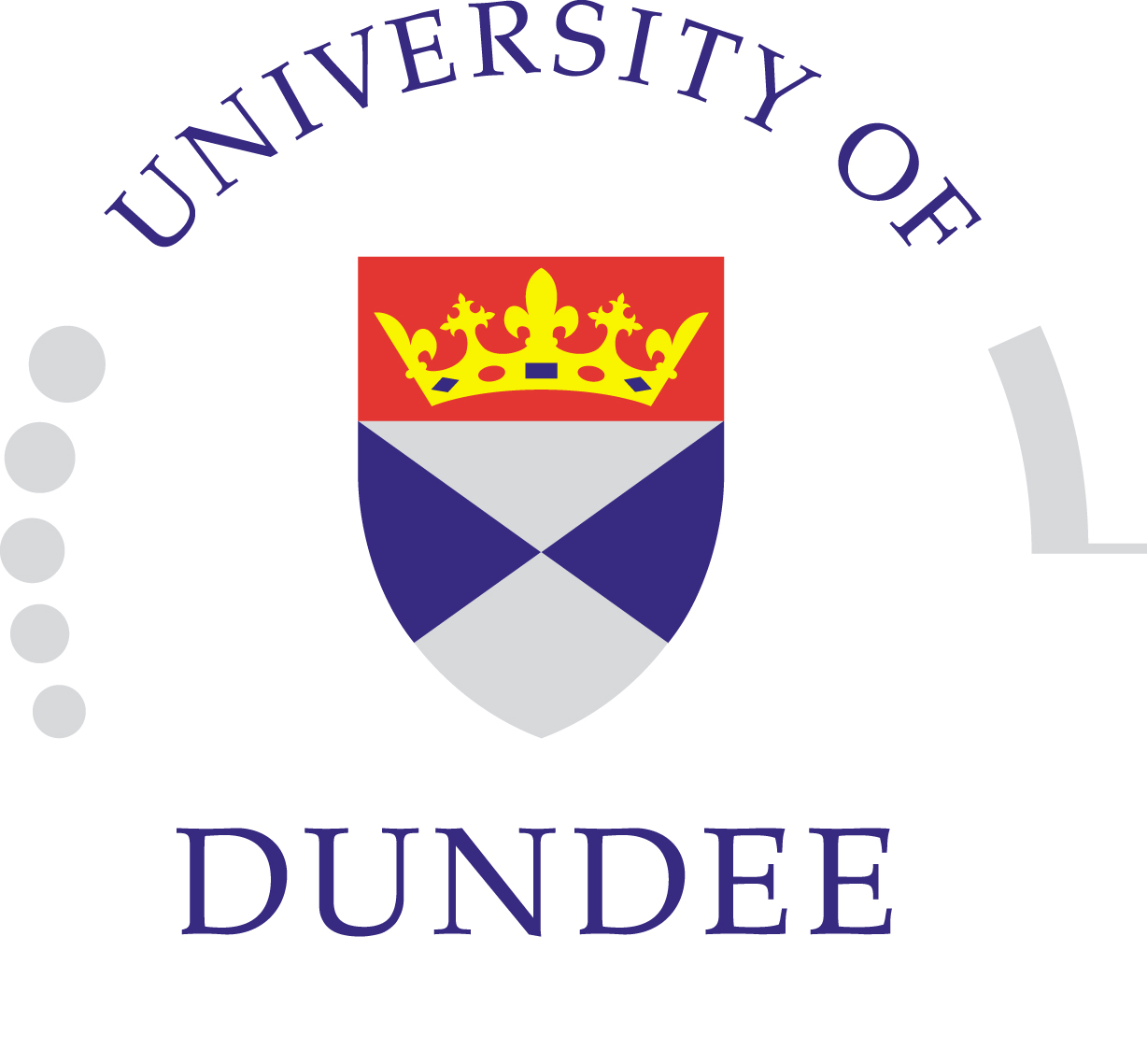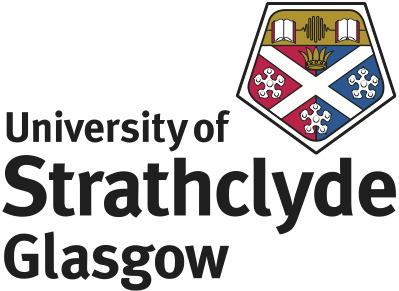








Scottish Numerical Methods Network 2018
First workshop: Strathclyde, 30 January 2018
Modern numerical discretisations of partial differential equations and adaptivity
Registration
10:15-10:30 Opening
10:30-11:30 Andrea Cangiani (Leicester)
Numerical PDEs and adaptivity on general meshes [slides] [abstract]
11:30-12:00 Lehel Banjai (Heriot-Watt)
Tensor Finite Element Methods for the Fractional Laplacian [slides] [abstract]
12:00-12:30 Irene Kyza (Dundee)
A posteriori error control for evolution Schrödinger equations [slides] [abstract]
12:30-14:30 Lunch break
14:30-15:00 John MacKenzie (Strathclyde)
An adaptive moving mesh method for geometric
evolutions laws and bulk-surface PDEs [abstract]
15:00-16:00 Georgios Akrivis (Ioannina)
Stability of implicit and implicit–explicit multistep methods
for nonlinear parabolic equations in Hilbert spaces [slides] [abstract]
Discussion
This is an open meeting. If you are interested in attending this meeting, please email Gabriel Barrenechea for more information about possible support for travel and accommodation.
Travel information is here.
Participants:
Andrea Cangiani (Leicester), Lehel Banjai (Heriot-Watt), Irene Kyza (Dundee), John MacKenzie (Strathclyde), Georgios Akrivis (Ioannina), Des Higham (Strathclyde), Penny Davies (Strathclyde), Jennifer Pestana (Strathclyde), Heather Yorston (Strathclyde), Romain Brunet (Strathclyde), Cristopher Rowlatt (Strathclyde), Phil Knight (Strathclyde), Steven Roper (Glasgow), Hongxia Guo (Dundee), Yuanhao Gao (Dundee), Emine Celiker (Dundee), Tengda Wei (Dundee), Fayed Alshammri (Strathclyde), Gabriel Barrenechea (Strathclyde), Ben Goddard (Edinburgh), Agis Athanassoulis (Dundee)
Abstracts:
Andrea Cangiani, Numerical PDEs and adaptivity on general meshes
Real-life models are often characterised by localised features such as solution layers/singularities, domains with complicated/moving boundaries, and multi-physics matching.
These features make the design of accurate numerical solutions challenging, or even out of reach unless computational resources are smartly allocated.
Complexity reduction can be achieved through the following framework: new Finite Element Method (FEM) approaches allowing for general partitioning of the computational domain combined with automatic adaptive meshing. For instance, general non-matching/curved mesh elements can ease the treatment of multi-physics boundaries and local geometric and solution features can be resolved adaptively.
Within this talk I will discuss recent developments on the extension of FEM to general meshes and adaptivity. In particular I will survey recent work on adaptive algorithms based on rigorous a posteriori error bounds for the Virtual Element Method [1,2,3] and hp-discontinuous Galerkin method [4,5]. The approach will be demonstrated through a few examples, relevant to the biosciences, with strong localisation of solution features or internal curved interfaces modelling semi-permeable membranes.
[1] Beirao da Veiga, L., Brezzi, F., Cangiani, A., Manzini, G., Marini, L. D., and Russo, A. Basic principles of virtual element methods. M3AS 23, 4 (2013), 199-214.
[2] Cangiani, A., Manzini, G., and Sutton, O. J. Conforming and nonconforming virtual element methods for elliptic problems. IMA J. Numer. Anal. 37, 3 (2017), 1317-1354.
[3] Cangiani, A., Georgoulis, E. H., Pryer, T., and Sutton, O. J. A posteriori error estimates for the virtual element method. Numer. Math. 137, 4 (2017), 857-893.
[4] Cangiani, A., Dong, Z., Georgoulis, E.H., Houston, P. hp-Version Discontinuous Galerkin Methods on Polygonal and Polyhedral Meshes. SpringerBriefs in Mathematics (2017).
[5] Cangiani, A., Georgoulis, E. H., and Sabawi, Y. A. Adaptive discontinuous Galerkin methods for elliptic interface problems. Math. Of Comp., accepted for publication (2017).
Lehel Banjai, Tensor Finite Element Methods for the Fractional Laplacian
In this talk we discuss the analysis and fast implementation of numerical algorithms for the solution of fractional linear elliptic problems on a bounded domain with a homogeneous Dirichlet boundary condition. We focus on the spectral fractional Laplacian and the corresponding Caffarelli-Silvestre extension. We make use of tensor product finite element spaces with $hp$ finite elements in the extended direction and piecewise linear or $hp$ finite elements in the bounded domain and prove convergence estimates. We describe fast methods for solving the resulting linear system resulting in algorithms of almost optimal complexity. Numerical results confirm the theoretical predictions.
This is joint work with J. Melenk, R. Nochetto, E. Otárola, A. Salgado, and Ch. Schwab.
Irene Kyza, A posteriori error control for evolution Schrödinger equations
We provide a posteriori error estimates for fully discrete approximations for a class of evolution
Schrödinger equations, including nonlinear Schrödinger equations up to the critical exponent. The
estimates are obtained in the L∞(L2)−norm and are of optimal order. For the discretisation in
time we use the relaxation Crank-Nicolson scheme, introduced by Besse in [Ch. Besse, A relaxation
scheme for the nonlinear Schrödinger equation, SIAM J. Numer. Anal. 42 (2004) 934–952]. For the
spatial discretisation we use finite element spaces that are allowed to change from one time-step to
another.
For the derivation of the estimates we use the reconstruction technique and nonlinear stability
arguments as in the continuous problem. More precisely, key ingredients for our analysis include the
time-space reconstruction for the relaxation Crank-Nicolson finite element scheme; the conservation
laws available for the continuous problem; and appropriate bounds of the L∞(L2)−norm of the
gradient of the exact solution of the continuous problem.
Various numerical experiments verify and complement our theoretical results.
This is joint work with Th. Katsaounis (KAUST & University of Crete)
John MacKenzie, An Adaptive Moving Mesh Method for Geometric Evolutions Laws and Bulk-Surface PDEs
In this talk I will consider the adaptive numerical solution of curve-shortening flow with a driving force. Such problems arise in many areas of science and engineering and the main challenge is the robust and accurate generation of meshes describing the evolving curve. I will present a novel adaptive moving mesh approach which is used to control the mesh point distribution in the tangential direction. This ensures that the resulting meshes evolve smoothly in time and are well adjusted to resolve areas of high curvature. Experiments will be presented to highlight the improvement in accuracy obtained using the new method in comparison with uniform arc-length mesh distributions. We will also discuss the use of the evolving adaptive curve mesh in the adaptive generation of bulk meshes for the solution of bulk-surface PDEs in time dependent domains. The developed methods will then be applied to the modelling of biological cell migration and chemotaxis.
Georgios Akrivis, Stability of implicit and implicit–explicit multistep methods
for nonlinear parabolic equations in Hilbert spaces
We consider the discretisation of a class of nonlinear parabolic equations in
Hilbert spaces by both implicit and implicit–explicit multistep methods, and establish local
stability under best possible and best possible linear stability conditions, respectively.
Our approach is based on a spectral and Fourier stability technique and uses a suitable
quantification of the non-self-adjointness of linear elliptic operators as well as a discrete
perturbation argument
Local organiser:
Gabriel Barrenechea